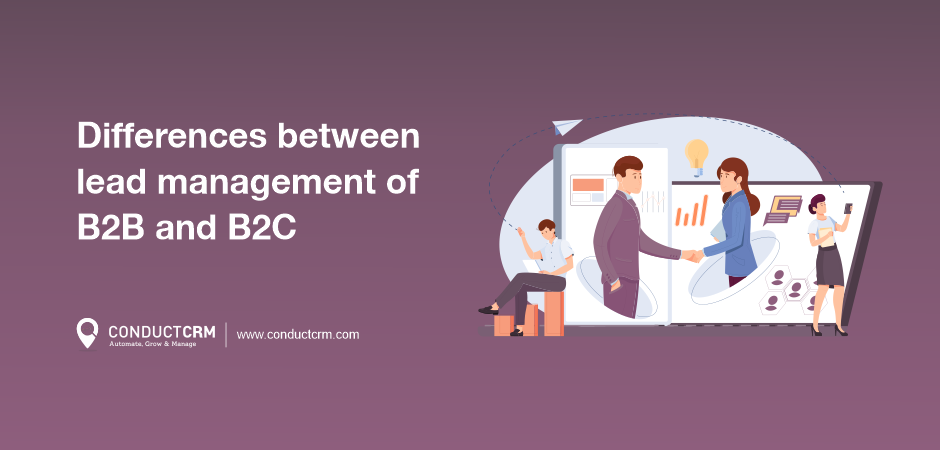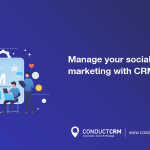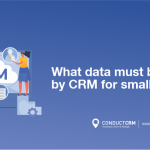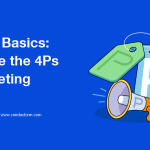Differences between lead management of B2B and B2C
Introduction
In this dynamic world of digital marketing or even in on-field sales and marketing, effective lead management is becoming a necessity. It becomes the most important part to gain more customers. However, lead management differs from B2B to B2C. Both businesses have different customer bases, purchasing behaviours, and sales cycles. So, It leads to different business strategies for both.
In this blog, we will explore the key differences between lead management in B2B and B2C. First, let’s understand what is lead management.
What is lead management?
Lead management is a process that involves capturing, tracking and getting potential customers or leads. To get more customers the process simply in this meaning lead generation, lead distribution, lead management and at last pitching the customer for the first time.
The goal of lead management is to effectively convert leads into customers and to ensure a seamless and personalized experience for each lead.
CRM software can handle the lead management process easily with automation features. Whenever businesses grow with immense property, you can not just handle it with traditional Excel sheets. And more importantly, you can not rely on your employees to do that. Because when the number of leads is more than 1000 per day simply, not a single person handles it on their own.
However, with CRM Software you not only handle the leads but also save time and cost for employees. And put their important time into doing other tasks.
What is the B2B market?
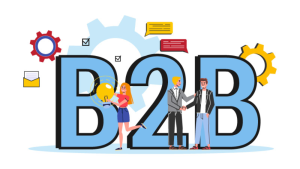
B2B stands for “Business-to-Business.” The B2B market refers to the business transactions and interactions that occur between two or more businesses rather than between businesses and individual consumers. In this market, companies sell products, services, or solutions to other companies to support their operations, production, or reselling activities.
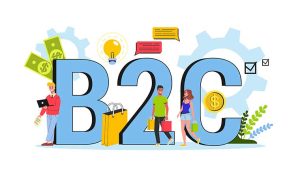
What is the B2C market?
B2C stands for “Business-to-Consumer.” The B2C market refers to the exchange of products, services, or information between businesses and individual consumers. In this market, companies directly sell their goods or services to end consumers for personal use and consumption.
Differences between lead management of B2B and B2C
1) Target Audience
One of the most significant differences between B2B and B2C lead management is their target audience. We know that B2B companies direct cater to other businesses, so they need to make more complex decisions than others. Also, when it comes to the B2B market businesses direct pitching to the other businesses. So, pitching language must be formal language and professional.
The purchasing decisions in B2B are often made by a group of stakeholders, involving various departments and individuals, each with specific needs and priorities. So, to cater for the big companies in the B2B market you need to do your best.
On the other hand, B2C companies target individual consumers. Customers who make emotional and relatively simple purchase decisions. And also when businesses pitch to customers they need good content but it is not compulsory to be professional or formal. In B2C lead management, understanding customer preferences, emotions, and impulse buying behaviour is essential to convert leads into sales.
2) Lead Generation Channels
The channels used for lead generation and management also differ significantly in B2B and B2C. B2B lead generation is usually focused on professional networks, industry events, email marketing, content marketing, and LinkedIn.
However, LinkedIn is becoming an important part of any business. It helps to market the company’s product, hire employees, and also connect to other businesses. These channels help businesses establish themselves as industry experts and build trust with potential clients.
In addition, B2C lead generation channels are mostly around social media, online advertising, influencer marketing, content marketing, etc. Other social media platforms like Instagram and Facebook are the most influential for B2C companies.
3) Length of Sales Cycle
B2B sales cycles are typically larger and mostly take more time to involve multiple touchpoints. Due to the complexity of the purchasing process. And the need to involve multiple decision-makers, B2B leads may take weeks or even months.
However, B2C sales cycles are generally shorter. Consumers make their decision on a personal level. They do not need to ask some other for their purchase. That’s why purchasing journey is often a matter of days or even minutes. B2C lead management focuses on swiftly converting leads into sales while ensuring customer satisfaction.
4) Relationship Building
The fundamental aspect of lead management for both B2B and B2C companies is building healthy relationships with customers. In B2B, relationship building is crucial to gaining trust and credibility. Personalized interactions, follow-ups, and addressing specific pain points are essential in B2B leads through the sales funnel.
In B2C, building a secure relationship with customers is mostly focused on creating an emotional one. However, it mostly does by content marketing. The engagement of the customer comes from how you write content. In addition, customer service is used to keep consumers coming back and turning them into retention consumers.
CRM software is helping to create strong customer relationships. Its automation feature is helping businesses to keep engaged with consumers.
Also Read: How to keep customers engaged after-sales service?
5) Keep Lead Engaged Strategies
B2B companies often rely on educational content, webinars, case studies, and personalized email sequences to keep leads engaged and informed throughout the lengthy decision-making process.
On the other hand, the B2C lead focuses on shorter and more impactful interactions. This includes limited-time offers, exclusive deals, and timely follow-ups to capitalize on consumers’ buying tendencies.
6) Data and Analytics in Lead Management
B2B lead management relies on in-depth data analysis to understand the buying behaviour of various stakeholders. It also needs to optimize the sales process and identify potential bottlenecks in the sales cycle.
B2C lead management, however, gathers consumer data to segment audiences, understand their preferences, and deliver personalized offers and recommendations. It also varies depending on different geographic locations and cultures of the audiences.
Last Words
In conclusion, lead management strategies significantly differ between B2B and B2C businesses. Understanding the distinctions between the two is vital for companies to tailor their approaches effectively.
CRM software can manage these tasks easily with its automation feature. ConductCRM offers you CRM software that is customizable according to your business needs. Contact us and Book Your FREE Demo now.
